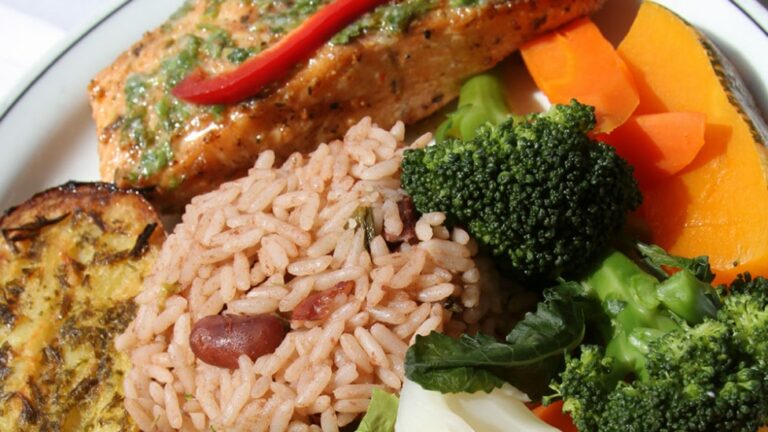Introduction: Antiguan and Barbudan Cuisine
Antigua and Barbuda are two islands located in the Caribbean Sea, and their cuisine is a reflection of their history and culture. The Antiguan and Barbudan cuisine is a blend of flavors and techniques from various countries, including Spain, Africa, France, and India, as well as some influence from British colonialism. The result is a cuisine that is unique to the islands and offers a fusion of flavors that is truly satisfying.
Caribbean Food: A Melting Pot of Cultures
The Caribbean region has a rich history of colonization and slavery, which has shaped its cuisine into a melting pot of cultures. Caribbean cuisine is known for its use of spices, herbs, and tropical fruits, which are grown abundantly on the islands. The cuisine also features a lot of seafood, including fish, lobster, and shrimp, which are integral to the local diet.
The Influences of Spanish Cuisine
Spanish cuisine has had a significant impact on Antiguan and Barbudan cuisine. The Spanish introduced ingredients such as rice, beans, and tomatoes to the islands. These ingredients are now staples in many dishes, including rice and peas, and pepperpot. Additionally, the Spanish introduced a technique called escabeche, which involves marinating fish or meat in vinegar and spices. This technique is still used in some Antiguan and Barbudan dishes today.
African Cuisine: A Strong Presence in Antiguan and Barbudan Food
African cuisine has a strong presence in Antiguan and Barbudan food, thanks to the transatlantic slave trade. The slaves brought with them their own culinary traditions, which have had a lasting impact on the islands’ cuisine. African influences can be seen in dishes such as ducana, a sweet potato pudding, and fungi, a cornmeal-based side dish.
How French Cuisine Shaped Antiguan and Barbudan Cuisine
French cuisine has also had a significant impact on Antiguan and Barbudan cuisine. The French introduced techniques such as braising and stewing, which are still used in many local dishes. French influence can be seen in dishes such as pepperpot and fricassee chicken, which are both slow-cooked stews.
The Impact of British Colonialism on Caribbean Cuisine
British colonialism had a significant impact on Caribbean cuisine. The British introduced ingredients such as salted cod and pork, which are still used in many dishes today. Additionally, the British introduced a technique called pickling, which involves preserving food in vinegar. This technique is used in dishes such as pickled cucumber and onions.
Indian Cuisine’s Influence on Antiguan and Barbudan Food
Indian cuisine has also had an influence on Antiguan and Barbudan food. The Indians were brought to the islands as indentured servants, and they brought with them their own culinary traditions. Indian influences can be seen in dishes such as roti, which is a flatbread, and curry goat, which is a spicy meat dish.
Conclusion: A Fusion of Flavors in Antiguan and Barbudan Cuisine
Antiguan and Barbudan cuisine is a testament to the islands’ rich history and cultural diversity. The cuisine is a fusion of flavors from various countries, including Spain, Africa, France, India, and Britain. This blend of flavors has led to the creation of dishes that are unique to the islands and are enjoyed by locals and tourists alike. Whether you’re enjoying some pepperpot or curry goat, you can taste the history and culture of Antigua and Barbuda in every dish.

